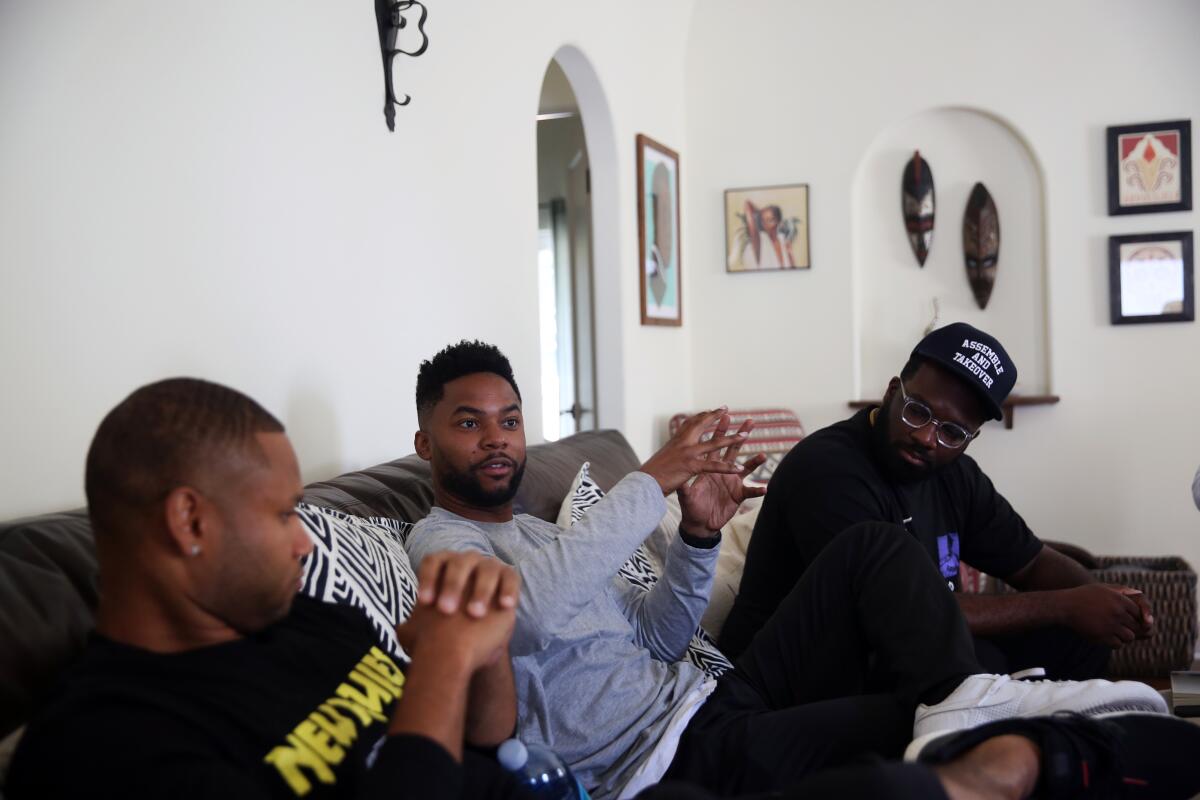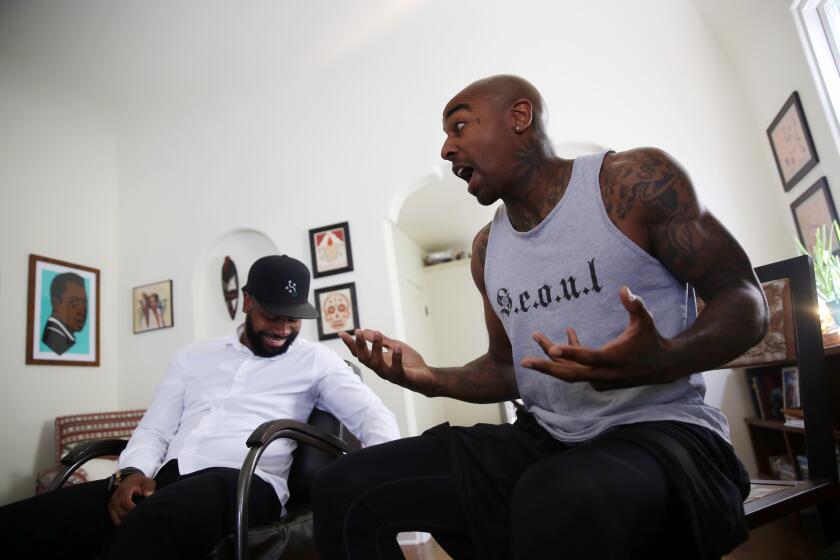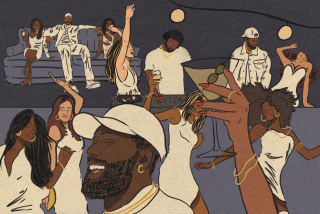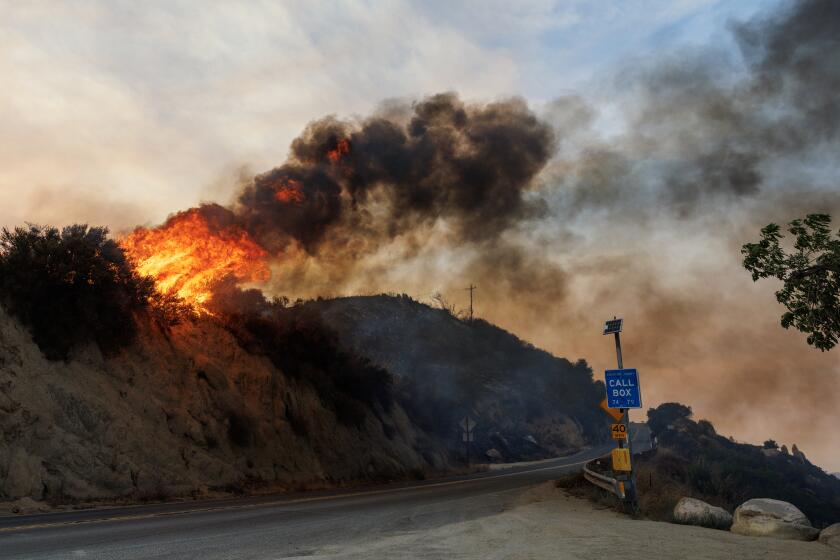Behind the story: How a reporter discovered the ‘Nipsey Hussle effect’

In the days after Nipsey Hussle was gunned down outside a strip mall near my South Los Angeles home, images of the rapper and community activist flooded social media. But it was a black and white meme that gave me pause.
Hussle was in a determined stance, his fingers interlocked in front of him, his head tilted slightly, almost as if the photographer captured him in the middle of a head nod.
He was covered in a list of book titles, more than 50 of them. Some, including “The Invisible Man,” “Between the World and Me” and “Rich Dad Poor Dad,” sat on my bookshelf. But some I had never heard of.
That meme prompted a reporting journey that ended in this story.
In the months since Hussle was killed in front of his South L.A. store, The Marathon Clothing, a community has emerged. Fans and followers, I learned, are using the teachings of the rapper and activist to improve themselves and the world around them. I’ve dubbed it the “Nipsey Hussle effect.”
It began with a woman in Wisconsin. Simran Kaleka, a 31-year-old lawyer, created the meme and gave his fans a way to process their grief.
A few clicks on social media lead me to Kaleka, who said Hussle’s death felt like the painful reopening of a wound that hadn’t yet healed.
In 2012, a white supremacist opened fire inside the Sikh temple where her family worshipped in suburban Milwaukee. Kaleka lost her uncle and five other loved ones, including a friend’s mother who was killed while bent forward in prayer.
The massacre shook her faith. She leaned into Hussle’s music, to which a friend in Atlanta had introduced her the year before.
“I fell into probably the darkest place in my life,” Kaleka said, recounting the days after the mass shooting. “Listening to his music was therapeutic and it helped me ascend and helped me navigate.”
Hussle’s lyrics in songs such as “Bigger Than Life,” in which he says in a slow, melodic chant, “God got me,” helped Kaleka feel less alone, she said. “It was a sense of therapy and motivation and holding yourself accountable and knowing that there’s more.”
Then, while Hussle was promoting his first studio album, “Victory Lap,” Kaleka noticed that he mentioned books he had read in interviews. An avid reader herself, Kaleka would jot them down and read them. She found they had similar tastes.
On April 12, she posted the meme of Hussle and his list of books on Twitter. It has been shared about 8,000 times.
It didn’t take long for fliers advertising chapters of a book club inspired by the meme to begin popping up, taped to the doors of businesses across neighborhoods of South L.A.
Once a month, black men come together for The Marathon Book Club — founded to read the books that inspired Nipsey Hussle, who was killed in South L.A. in March.
I dropped in on one at Harun Coffee in Leimert Park. A dozen people had pulled their chairs in a circle to discuss “PowerNomics” by Dr. Claud Anderson. Together, they brainstormed ways to reclaim a community that’s slowly being reshaped by the forces of gentrification.
As I pursued the story, I interviewed Malik Muhammad. At the entrance of his store, Malik Books at the Baldwin Hills Crenshaw Plaza, he had assembled a table with paperback novels from Hussle’s reading list. He also was selling a bundle of four books that he called the “Nipsey Pack” that echoed different themes of self-improvement. He donates a portion of the proceeds from each to scholarships for youths.
“I felt a connection with him spiritually, morally and mentally, though I never knew him,” Muhammad, 55, said of Hussle. “We had the same do-for-self and our community attitude.”
Kaleka never knew Hussle either but had a chance to meet him before he was killed. But when she ran into Hussle during the NBA’s All-Star Weekend in Charlotte, N.C., last February, she didn’t introduce herself. She had such respect for him she didn’t want to invade his space. She now regrets it.
When she learned of Hussle’s death, it sent her back to that same dark place she had been in when she lost her uncle and other loved ones.
“I was in mourning and grieving and literally could not function,” she said. “I had to channel that energy.”
She told me she now sees the chapters of The Marathon Book Club that the meme inspired as part of Hussle’s legacy.
“It’s not the end of his victory lap,” she said, referencing his Grammy-nominated album. “Maybe the other part of his victory lap is us applying what he taught us.”
In other words, the marathon continues.
More to Read
Sign up for Essential California
The most important California stories and recommendations in your inbox every morning.
You may occasionally receive promotional content from the Los Angeles Times.












